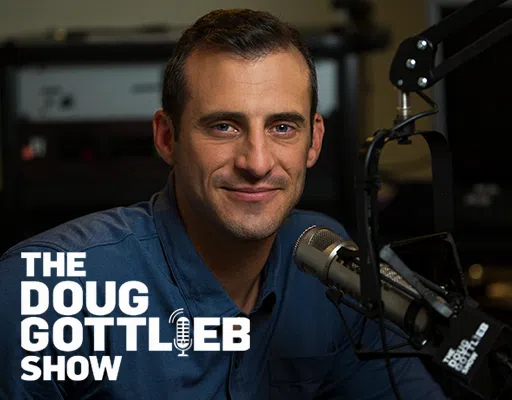How much money is too much for a quarterback?
Last week, when Miami quarterback Tua Tagovailoa said about his contract, “The market is the market,” he was right. The positional market in the NFL salary structure dictates a price, regardless of the talent level or contribution towards winning. The quarterback, or any position, is like the real estate market in America. It’s like buying a home in a specific neighborhood. The schools are good, the downtown is lush, and even though the house isn’t the best one on the street, the price is inflated. Baker Mayfield isn’t great, but his neighborhood requires a certain price. As they often would say in the HBO Show The Wire, “The game is the game.” For the NFL, the market is the market.
From the study of the market, as it relates to the salary cap, we have come to believe a line that isn’t attributed to anyone yet carries clout and is repeated without evidence to support the claim: “Your best chance to win a Super Bowl is when the quarterback is on his rookie contract.” Only one team in the last 10 years, the Chiefs, with Patrick Mahomes in the third year of his rookie deal, has fulfilled this line.
The last 10 years, Tom Brady, Matthew Stafford, Peyton Manning, Nick Foles (filling in for Carson Wentz, who was paid), all have won, and all have been beyond their rookie deals. So why do we keep repeating the line? Because the line has some validity and should be slightly altered to say, “When the quarterback doesn’t take all the money in terms of percentage of the cap, then your team has a great chance to win a Super Bowl.” That needs to be the new tagline.
Most rookie quarterbacks aren’t ready to win a title. They need time. They need to understand the hardships and the degree of difficulty of reaching the pinnacle of success. To win a Super Bowl, you need an experienced quarterback with great playmaking skills—everyone knows this. With experience comes pay substantially above the rookie scale. Again, everyone knows this. So, expecting a rookie quarterback to take a team to a title is hard. Brock Purdy has gotten close.
Instead of examining the cost per year, teams understand that the percentage of the cap by position is far more important year by year. For example, Mahomes has accounted for roughly 17% of the Chiefs cap, the most of any quarterback who has won a Super Bowl since Steve Young when the cap was first instituted. Then Young was eating away at 13.1% of the 49ers cap, which was the highest allocation until Mahomes for any Super Bowl-winning quarterback.
As a point of reference this season, the Browns’ Deshaun Watson, 25.0%, the Cowboys’ Dak Prescott, 21.7%, the Rams’ Matthew Stafford, 19.4%, and looking for more, the Cardinals’ Kyler Murray, 19.2% and the Giants’ Daniel Jones, 18.8%, are the top five quarterbacks in terms of allocation for 2024. What this means is those teams must have a great supporting cast of rookies who contribute mightily to the team, and each quarterback is so good that they carry the team towards winning.
Read the list again. Other than Stafford, who can carry anyone? Prescott is a good player who wants more and has been paid handsomely for winning two playoff games, both wildcard games. The Cowboys need Prescott to compete for a title, but as Dr. Melfi once told Tony Soprano in the HBO show The Sopranos, “You don’t have to eat every dish of rigatoni.” With CeeDee Lamb and Micah Parsons due for huge raises, the Cowboys window is closing. Once they sign all three players, they will be so top-heavy that their roster will be filled with players on rookie deals. Can they win a title this way? History says no.
Last year, because of sound drafting, and the commitment towards improving their defense and not the wide receiver room, the Chiefs won with Mahomes making the most of any quarterback in terms of percentage, and 64 of the 92 players who appeared on the Chiefs roster last year operating on a rookie deal. Their game day roster included 10 rookies who all had a role towards winning, either with special teams or on their respective units. The point here is you need a great quarterback, you need one who has earned his salary, and then you need to be successful in finding cheap talent in other areas—you cannot spend your way toward a Super Bowl.
Which leads us back to Tua. He is going to get paid handsomely in the coming months, and for the first three years of his deal because of the structure of the deal, he won’t eat as much of the cap as others. Currently, because of the fifth-year option, he accounts for 11.1 of the Dolphins’ cap, ranking him 11th overall. Once he gets his new deal, the percentage for the first three years won’t exceed his current number. Much like Joe Burrow of the Bengals is at 12%, Josh Allen is at 11.8% and Lamar Jackson is at 12%.
The Giants are at 19.3%, ranking fourth overall in the percentage of cap for Daniel Jones and Drew Lock, and the Cards are at 18.9% allocation, ranking fifth for Kyler Murray and Desmond Ridder. Why? What has Jones ever done to deserve this deal and eat up 18.8% of the Giants’ cap? He is 6-21 against teams that went on to make the playoffs, 0-11 against teams that won twelve or more games, and according to NFL research, the only quarterback to receive a contract in excess of $100 million and never have a season of throwing for 3,500 yards, or 25 plus touchdowns.
The Murray deal made no sense, as he had two more years remaining on his rookie contract, and this allocation would require the Cards roster to be filled with talented young players. Neither the Giants nor the Cards ever examined the history of the allocation percentage for quarterbacks on Super Bowl teams, and most importantly, they made the fatal mistake of overpaying for good. It’s one thing for Steve Young, Mahomes, Brady and others to take a large share of the cap, they are great. Jones and Murray are not.
So how does this all tie back into betting? These numbers help us with win totals, not on a game-to-game basis. What we need to examine is the allocation, followed by the rest of the roster. First, is the allocation correct? Then, can the remainder of the roster contribute? Lions quarterback Jared Goff is at 11.74% of the Lions cap, leaving plenty of room for their roster to improve if they suffer injuries throughout the season. Dallas and Cleveland appear to be trapped with high allocations, thus preventing them from overcoming injuries, which is why both teams are worth fading entering the 2024 season.
Moving forward, let’s talk allocation, not rookie deals.
The post Michael Lombardi: When is a quarterback overpaid? appeared first on VSiN.






